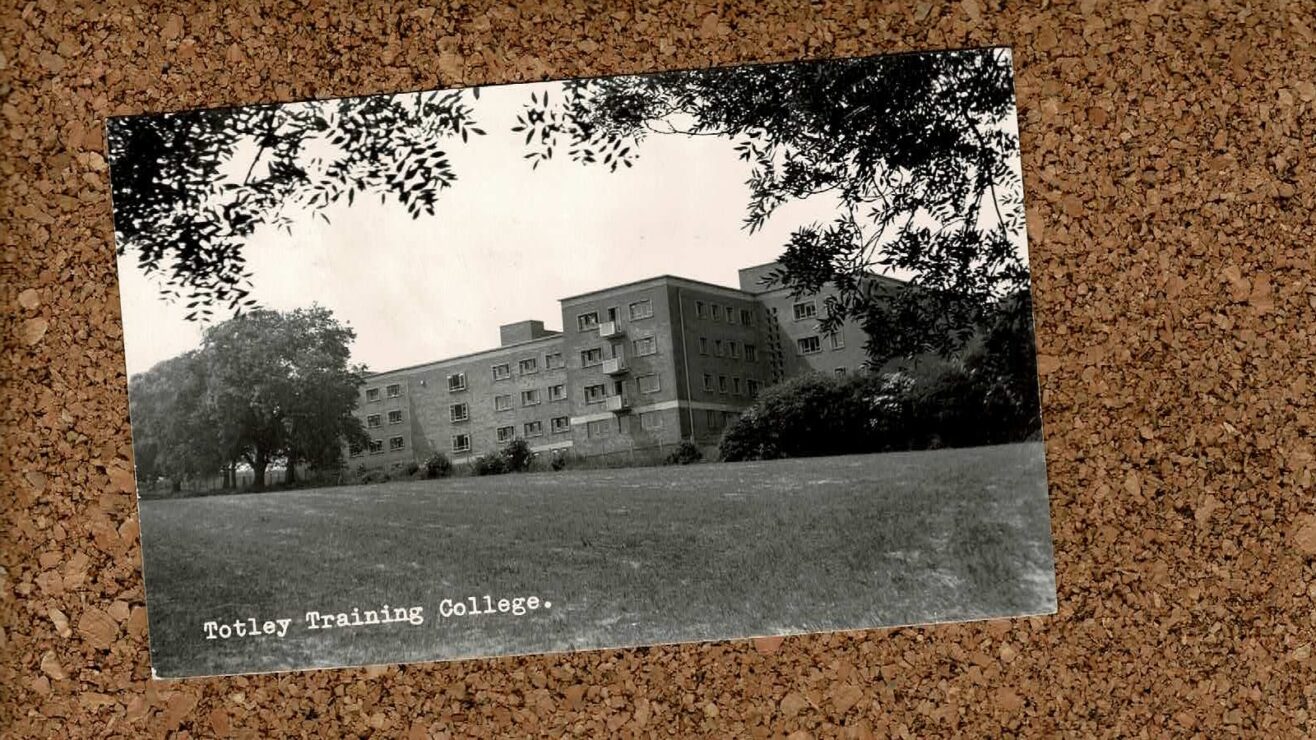If phrases like the “refocusing of regulation around the student interest” sound familiar, that’s probably because they are.
Over ten years ago now, the Higher Education Funding Council for England (HEFCE) said that given reforms to fees and funding, with students paying more for their education, it was important they receive good value for that investment – and so it would regulate in the “collective student interest”.
It never really got round to defining the collective student interest, and nor did it set out a process by which it would do so. And then it was abolished.
Its replacement regulator has had several goes – then universities minister Jo Johnson said in 2007 that OfS would “put the interests of students at the heart of regulation”, and OfS’ first chair Michael Barber said that it would regulate in the “interests of students, short, medium and long term.”
But at best, the closest that OfS ever seems to have got to defining the student interest has been to define it in opposition to “producer interest”. And the practical application of its processes for defining the detail – its student panel, its student board member and its survey work – have all come in for sustained and consistent criticism.
The good news is that after several false dawns, its Director for Fair Access and Participation John Blake – who has evidently been handed the job of fixing “the student interest” in the regulator’s future work – is starting to sound like someone who actually understands the issue, and might even be able to fix it.
Sound of the guru
In a speech to the annual SUs Membership Services Conference in Manchester, Blake began by reflecting on changes in the relationship between students and their universities since he was a students’ union officer in the 2000s:
I vividly recall seeking help from my dyslexia at one institution where the student support officer, of whom there was only one, had a desk very deep inside of concrete fortress behind multiple doors that could only be opened by authorised staff. Returning there recently, I noticed that the equivalent office is now pretty much the first thing one sees entering that building that is rather more generous in staff.
The change, Blake noted, also gave opportunities for enhancing the role of students in determining the strategy and day to day governance of their institutions – and that “long arc” of refocusing on students has also seen the “transmogrification” of a funding council run “largely by and for the leaders of the university sector” into a regulator orientated towards students – a “symbol of their central role in higher education”.
So much, so groundhog day – but six since the creation of OfS, Blake accepted that it is:
… fair to say we still have challenges delivering that centrality of student interest… We recognize that our understanding and communication of the student interest has not always been strong enough or consistent enough for our regulation to be visible to students… As a result, students have not always felt the confidence in our regulation that they should.
One aspect of that is consumer framing. The way students talk about their experience of higher education, according to Blake, sounds a lot like consumers describing a relationship with a service provider – but at the same time, students are “almost unanimously against” describing themselves as consumers of higher education:
So what do you do when the customer is always right, but they say they aren’t a customer, but then also describes lots of issues and challenges in a way that a disappointed customer might do. It isn’t as though we as the higher education regulator are not acutely aware of the baggage that comes with terms like a consumer and the market focused discourse it implies, but frankly, it does seem to describe well significant aspects of what we need to think about, to define and defend the student interest. So I’m talking about this today in part to show our working on this, what we’ve heard, what we thought about saying and what we actually plan to say.
That wasn’t quite a recognition that students can be both consumers and learners (and citizens and clients) all at the same time – but for those concerned about marketisation, neoliberalism or the “passive consumption” implied in the term, it’s quits a step forward. It could even, in time, a step towards a framework of student rights that avoids the “consumer” term altogether.
What Blake had heard was concrete experiences that students are having right now – where reality does not match their expectations – or where promises aren’t met, with themes like fairness, honesty and belonging all coming through strongly:
They are a pretty realistic bunch generally [but] they tell us they are not getting the teaching hours they were promised, they tell us their work is not marked and support offered in a timely fashion, they tell us they don’t have the time resources and opportunities to get involved in the extracurricular activities so prominently featured in the prospectus and crucially, students tell us frequently that if they are unhappy about any of these things too often, their university or college does not respond speedily and effectively.
The distinction he was trying to draw was between the experience of higher education – which students are better able to make judgements on – and its longer term value:
There are issues that go beyond the now, a potentially related but distinct set of experiences where judgment about the value of higher education provision cannot be made for the moment or by the student alone or without significant professional input, whereas anyone can assess whether a sofa they want to buy is good quality by testing you before they use it. Try before you buy does not really work in education.
And there was also a bit of playing to that bit of the gallery that questions student evaluations of teaching:
Students might enjoy a lecture delivered in a specially entertaining style, but subsequently discover that they can remember none of it or what they’ve taken away is outdated or misleading. Students might be delighted to receive a first class degree at graduation, and only discover later that their institution has a reputation amongst employers for giving out too many high grades too easily, and their progress is affected long after they left our education by something they cannot change.
The upshot is an intent to draw a distinction between what is important to students when they are choosing and experiencing their education – their expectations and their experience now – and what may “only be revealed as significant many years later”, or whose impact “may never be fully appreciated”.
Getting in, in and in
The second half very much focussed on what the regulator will do to bring much of this to life. And these are about OfS’ “three ins”:
- Student insight, what OfS needs to know about what students experienced before, during and after higher education in order to properly deliver regulatory work
- Student input, opportunities for students and their representatives to share what students think OfS needs to know and hear its responses, and
- Student information, what OfS thinks students need to know and what should be freely available to students before, during and after their involvement in higher education in each of these areas
This all made lots of sense – he’s “cautious” about over promising and under delivering in this area, OfS is “taking its time” and “developing it in stages”, and will pay “close attention to students’ voices” to increase its access to insight.
An expanded use of polling and focus groups, student insight internships, “productive conversations” about the future of its panel (and its sister disability and higher education advisory panel) are all in the mix – as is a review of the use students make of the Discover Uni website and the National Student Survey to ensure “OfS has the right tools to put relevant info in front of students.”
One area where the audience was hoping for flesh on the bones surrounded housing – OfS CEO Susan Lapworth has teased the regulator responding to students even where it doesn‘t have a formal role:
If we would conclude that students have been led to expect adequate accommodation within a reasonable distance of campus, which is a key component of belonging for many undergraduates, it would only be fair for us to expect providers to take action to achieve that. Given we have no regulatory powers over private student housing providers, we have to be open and honest with students that the OfS can’t wave a magic wand and make reasonably priced student flats appear overnight, but OfS must take a role, or at least have a view where students have been treated unfairly, even if it is only to give an honest and open account to the sector and to government about the state of student experiences and the likely impact of those on student outcomes.
A question from the audience sought some clarity on casework delegates had been deadline with surrounding the availability of accommodation when a university expands:
When the 2012 number count was changed, there are institutions that literally doubled in size overnight… I don’t know that the answer is us saying, no, you can’t have your students, or you have to do this. But I think there’s definitely scope for us thinking about what the obligation of institutions to have their discussions with their local community about where their students are going to go, because it’s clearly not sustainable for every institution to double itself overnight in small places.
It’s all jolly good stuff – but if there’s anything missing, it’s the kind of thought that Blake is famous for in his Access and Participation work on theories of change and resetting how things within institutions.
Hush my puppy
I over-tell the “on my gap year” story, but to recount it again, I travelled and worked – I travelled to Wolverhampton and worked in a shoe shop.
I’m not, for the avoidance of doubt, suggesting that enrolling into HE is like buying a pair of Hush Puppies – but one aspect of assistant-managing in retail that has stuck with me is the sense of power that plenty of people in the queue seemed to have when they demanded a refund.
“I know my rights”, “Sale of goods act” and so on would pepper the exhortations to admit that the shoes they were attempting to return were faulty. And we were trained, when they appeared to know the law or were set to make a public-ish fuss, to relent.
The textbooks would tell us that this kind of small, day to day complaint rising – not invoking a risk-based regulator or even a formal process but raising things for resolution directly – can be depressed by five factors:
- Opportunity costs (ie time)
- Conflict aversion
- Confidence and cultural/social capital
- Ignorance of their rights
- Fear of retribution in future funding/treatment
All five can apply in a shoe shop in the West Midlands, but they can apply a lot more in the relationship between students and their university. All five increasingly apply to students’ unions too.
And so if you want providers to be more responsive and for students to more consistently get what they were promised, you would need to take steps to reduce those barriers – causing students and their representative bodies to feel more able to get the failures found and fixed without OfS, rather than through it.
Maybe that will come later, and maybe the volume of the “little things” – that Blake did say in the Q&A can add up to a lot – will cause his new brief to broaden beyond OfS exercising its power, and towards more assertive partnership relationships between students and their university.
We’re getting closer to a viable theory of change – but we’re not quite there yet.














Two immediate thoughts on the what wasn’t mentioned>
1) Cost of living challenges for students (ie maintenance not having kept pace with inflation).
2) Financial sustainability – and how the OfS will protect the student interest in the face of providers having to make cuts or face closure.
[TBF these may have come up in the Q&A, but isn’t covered in his published speech]
It’s good to hear the comments about the student panel, the apex of student engagement at the OfS. We’ve been told: “We get a good level of student feedback, but we are presently looking at the way the student panel works and what we can do to expand it. We have a new student panel board member who wants to reform it and to have more focused workstreams to ensure that it can report back in a crisper way and therefore, hopefully, influence more clearly some of the outcomes of the OfS’s work.” That was Lord Wharton on 9 May… Read more »
Good news. One area that I have spoken to John about that really would offer valuable insight is OfS supporting a national pre-arrival questionnaire exploring students prior learning experiences, expectations on entry and any concerns that could affect their study journey. Universities would have access to their own data for analysis immediately and national analysis could be undertaken by region, mission group etc.
I like the idea of a “national pre-arrival questionnaire…”
Perhaps UCAS should be given a copy of the data so that, by using really clever AI, it could tell each student applying for every course at every university what the likelihood was of their choice meeting their requirements.
I realise that there is a risk that many applicants could not be matched with any institution but perhaps this would be a good thing and many would withdraw their applications